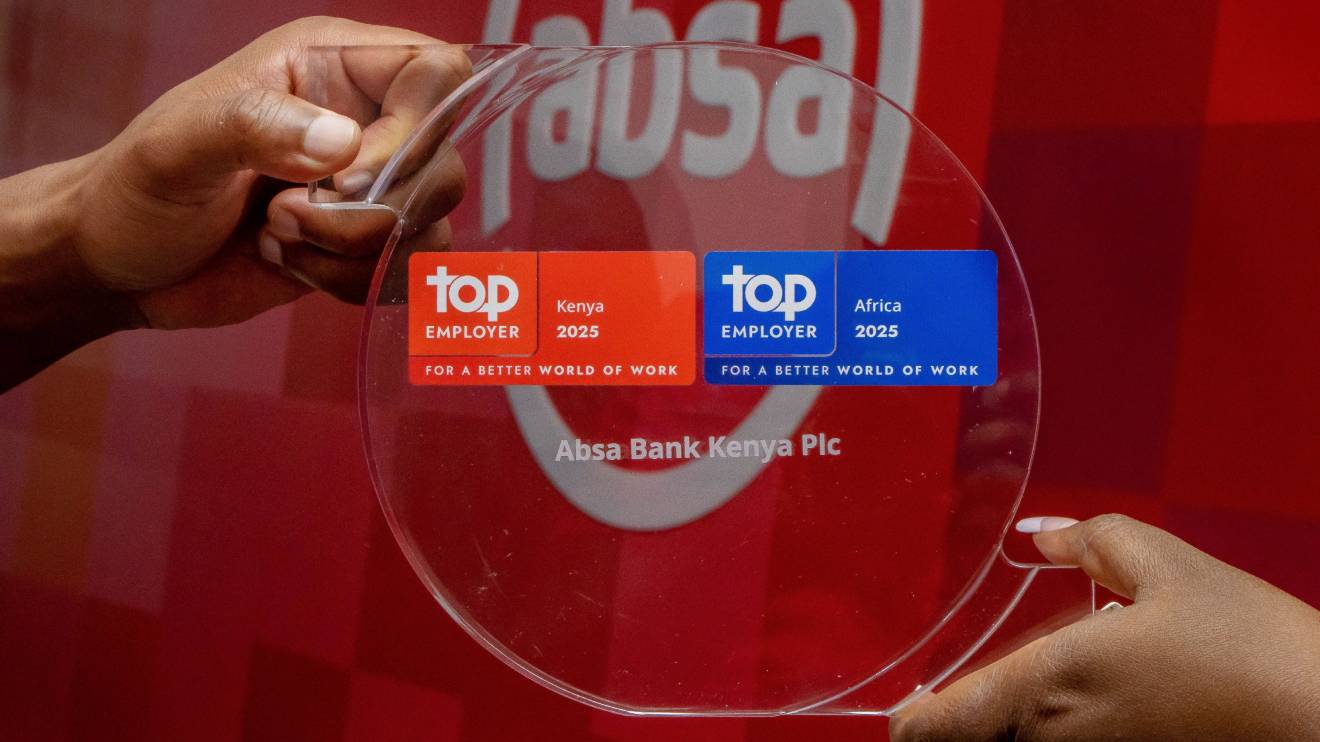Absa Bank Kenya is making bold steps to ensure banking in Kenya is not just about profits, but also about equitable access, financial empowerment, and sustainability.
The bank says its goal is to bridge the gap for underbanked and underserved communities particularly youth, women, and Persons with Disabilities (PWDs), by designing products, training programmes, and community initiatives that expand opportunities and unlock potential.
At the core of Absa’s strategy is aligning with the UN Sustainable Development Goals (SDGs 8 and 10), which call for decent work, economic growth, and reduced inequalities.
Opening Digital Doors
One of the bank’s flagship tools for inclusion is Timiza, a mobile platform that offers savings and digital loans to individuals and SMEs.
Read More
In 2024, lending through Timiza and other inclusive finance solutions hit Sh43 billion, including Sh25 billion disbursed via Timiza to business start-ups and unbanked individuals.
For Absa, the goal is simple: use technology to give traditionally excluded groups a chance to thrive.
Another key product is Tawarruq, launched in 2023, which provides Sharia-compliant unsecured loans alongside financial literacy training.
By serving La Riba customers seeking ethical investment options, Tawarruq has grown into a strong pillar of Absa’s inclusive finance offering.
Skills for the Future
Financial inclusion is not just about money, it is also about skills.
Through its ReadytoWork programme, Absa is equipping thousands of young people with employability, entrepreneurship, and financial management skills.
The free, self-paced digital curriculum is part of Absa’s bold target to train 1 million youth by 2030.
By empowering young people with knowledge, Absa is nurturing a generation that can better manage risks, build businesses, and invest in their future.
Women Lead
Absa’s Women in Business (WIB) proposition has become a cornerstone of its inclusion agenda.
In 2024 alone, it empowered 26,281 women with financial services, literacy, and entrepreneurial skills.
Several flagship initiatives sit under WIB:
Tuungane 2XNa Absa – an incubator for women-led SMEs, funded with support from the Africa Guarantee Fund. In 2024, its first cohort of over 200 women entrepreneurs graduated.
Sunlight Women of More Programme – in partnership with Unilever and UNITAR, this programme aims to empower 5,000 women entrepreneurs through training in business models, digital literacy, and leadership.
Inspire Me Conference – since 2021, this event has become a Pan-African platform for women entrepreneurs. The 2024 edition drew over 10,000 women from Kenya and across Africa, both in person and virtually.
SHE (See Her Empowered) Initiative – run in partnership with GIZ and Yunus Environmental Hub, it has reached tens of thousands of women entrepreneurs nationwide.
Beyond Banking Halls
For Absa Bank Kenya, inclusion is not limited to products, it extends into the workplace and communities, where the bank continues to embed sustainability, mentorship, and equal opportunity into its DNA.
By championing women, empowering youth, and supporting PWDs, Absa is shaping a banking model that goes beyond transactions to touch lives and create lasting impact.
As the numbers show, the financial institution is already making strides and positioning itself as a leader in inclusive finance and sustainable growth.
Empowering PWDs
For too long, many Kenyans living with disabilities have found themselves locked out of the formal financial system, but Absa is changing that story proving that inclusion can be a key driver of growth and innovation.
The lender has been rolling out deliberate measures to ensure PWDs can bank, invest, and build wealth with dignity and ease.
From wheelchair ramps in all its branches and ATMs, to digital banking platforms that comply with ICT accessibility standards, Absa is steadily breaking down barriers that once excluded an entire segment of society.
And it does not stop there, the bank has already mapped 31 employees and two supplier firms owned by PWDs with plans to bring more onboard.
Its onboarding system now goes a step further, categorising PWD clients by their specific needs, whether hearing, low vision, speech, or non-visible disabilities, to ensure tailor-made support.
Beyond accessibility, Absa is backing financial literacy and opportunities for PWDs.
Through its corporate social investment budget, it has funded training programmes and partnered with IFC, the Government, and KNCCI to help PWD-led businesses access markets, financing, and procurement opportunities.
In its Ready2Work programme, 25 student PWDs at USIU received hands-on training in entrepreneurship, sustainability, and data analytics, practical skills to thrive in today’s economy.
These efforts are anchored in the bank’s 2024 Sustainability Report, which revealed a massive Sh47 billion commitment to sustainable finance across Kenya, with financial inclusion as a cornerstone.
For Absa Bank Kenya, this is not charity, it is about building a stronger, fairer financial ecosystem where PWDs are recognised as valuable contributors to Kenya’s growth story.
It has further adopted PWD Act and is aligning all its digital platforms to fully comply with ICT Accessibility Standards for PWDs-enabling access to Timiza, USSD Hello Money and Banking App using mobile enabled assistive device.
Similarly, Absa has allocated a percentage of its corporate social investment budget to PWD financial literacy and inclusion while training PWD suppliers for corporate procurement.








